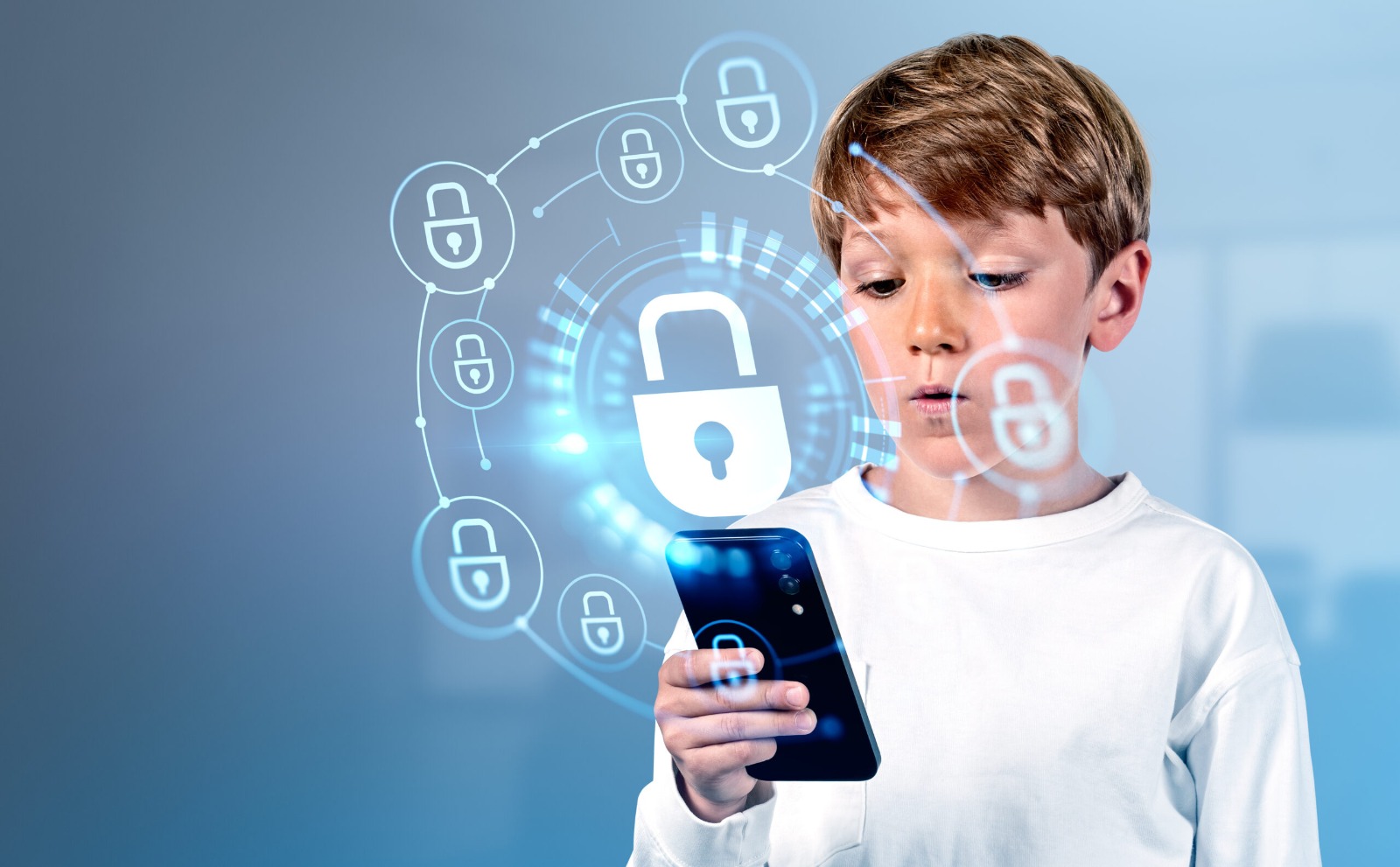
Why Cybersecurity Should Matter to Everyone.
In an increasingly digital world, cybersecurity is no longer just a technical issue but a fundamental necessity that affects everyone. From protecting personal data and financial assets to safeguarding privacy and mental well-being, understanding and practicing cybersecurity is essential. This article explores why individuals of all ages and backgrounds must prioritize cybersecurity to prevent identity theft, financial loss, cyberbullying, and the broader impacts on society.
✨ Raghav Jain

Introduction
In today's digital era, our lives are more interconnected than ever. From smartphones and laptops to smart refrigerators and home security systems, nearly everything is connected to the internet. This seamless integration of technology has brought immense convenience, but it has also opened the doors to new kinds of threats. Cybersecurity—the practice of protecting systems, networks, and programs from digital attacks—has become a crucial aspect of modern life. Yet, many people still view it as a concern only for IT professionals, corporations, or governments. This perception is not only outdated but dangerous.
The truth is that cybersecurity should matter to everyone. Whether you're a student, a working professional, a retiree, or even a child, the risks posed by cyber threats are real and potentially devastating. This article delves into the reasons why cybersecurity is important for all individuals, the consequences of ignoring it, and what steps we can take to safeguard ourselves.
1. The Ubiquity of Technology
Our daily activities are steeped in digital interactions. We shop online, communicate via social media, stream entertainment, and even manage our finances and health records using digital platforms. The more we rely on technology, the more we expose ourselves to cyber threats.
Imagine if a hacker gained access to your smartphone. They could potentially:
- Read your emails and messages
- Steal your identity
- Access your bank accounts
- Monitor your real-time location
- Use your camera or microphone without consent
All of these are terrifying yet entirely plausible scenarios in the absence of adequate cybersecurity measures.
2. Everyone is a Target
One of the most persistent myths is that cybercriminals only target large corporations or high-profile individuals. In reality, everyone is a target. Cybercriminals often prefer attacking individuals because:
- People tend to use weak passwords
- They reuse the same password across multiple sites
- They lack basic knowledge of cyber hygiene
- They may not have advanced security software
A single successful phishing email, weak password, or unpatched software vulnerability can provide attackers with all they need to compromise your system.
3. Financial Implications
Cyberattacks can be financially devastating. Some of the common types of financially motivated attacks include:
- Ransomware: Attackers lock your data and demand a ransom for its release.
- Phishing: Fake emails trick you into giving out sensitive information.
- Bank fraud: Hackers use stolen credentials to drain your accounts.
- Credit card theft: Stolen card numbers are used to make unauthorized purchases.
According to Cybersecurity Ventures, cybercrime is expected to cost the world $10.5 trillion annually by 2025. Even on an individual level, losses can range from a few hundred dollars to one’s entire life savings.
4. Identity Theft and Privacy Violation
Identity theft is a growing issue. Hackers can steal your personal information such as:
- Social Security numbers
- Medical records
- Tax documents
- Employment history
With this data, they can:
- Open credit lines in your name
- File false tax returns
- Commit insurance fraud
- Ruin your credit history
More than the financial cost, identity theft can lead to long-term emotional stress and bureaucratic hurdles.
5. Social Engineering and Psychological Manipulation
Cybersecurity isn't always about breaking codes; often it's about breaking people. Social engineering attacks manipulate individuals into performing actions or divulging confidential information. Common tactics include:
- Pretending to be a trusted contact
- Creating a sense of urgency or fear
- Offering something too good to be true
These tactics exploit human psychology, making awareness and education crucial aspects of cybersecurity.
6. Cyberbullying and Online Harassment
Especially for teenagers and children, cybersecurity also means protection from cyberbullying. Cyberbullies exploit digital platforms to harass, demean, or threaten others. This can have severe psychological effects, leading to:
- Anxiety and depression
- Academic decline
- Social withdrawal
- In extreme cases, suicide
Parents and guardians must take an active role in monitoring digital behavior and teaching children about online safety.
7. Smart Devices and the Internet of Things (IoT)
From smart thermostats to connected cars, the Internet of Things (IoT) has revolutionized our homes and cities. However, these devices are often less secure than computers or smartphones, and they collect vast amounts of personal data.
If hacked, an IoT device can:
- Be used to spy on you
- Provide access to other devices on your network
- Be recruited into a botnet for large-scale attacks
Therefore, securing IoT devices is an essential aspect of personal cybersecurity.
8. Cybersecurity and the Workplace
Remote work and hybrid environments have introduced new challenges in cybersecurity. Employees accessing company data from personal devices or public networks are at higher risk of breaches.
Employers often implement protocols such as:
- VPNs
- Multi-factor authentication (MFA)
- Firewalls and endpoint protection
But individual responsibility is just as important. One employee’s carelessness can compromise an entire organization.
9. Legal and Ethical Responsibilities
Negligence in cybersecurity isn’t just risky—it can be legally and ethically irresponsible. If you store other people’s information (clients, friends, family), you have a duty to protect it. Failing to do so can result in:
- Legal liability
- Loss of trust
- Reputational damage
In sectors like healthcare and finance, regulatory frameworks (like HIPAA and GDPR) mandate stringent cybersecurity standards.
10. Cybersecurity as a Life Skill
In the digital age, cybersecurity is not just a technical subject—it is a life skill. Just like we teach children not to talk to strangers or cross the street without looking both ways, we should teach:
- Creating strong, unique passwords
- Recognizing phishing attempts
- Regularly updating software
- Using antivirus and VPN tools
These are no longer optional but essential habits for everyone.
In today’s hyperconnected world, where everything from banking and shopping to socializing and working takes place online, cybersecurity has become a fundamental concern that affects every individual, not just governments, corporations, or IT professionals. As technology continues to infiltrate every aspect of our daily lives, from smartphones and laptops to smart refrigerators, wearable fitness trackers, and connected cars, the amount of personal and sensitive data being generated, stored, and transmitted across digital platforms has grown exponentially, making it an attractive target for cybercriminals. While many people still believe they are too insignificant to be targeted, this misconception only adds to the vulnerability, because cyber attackers often prefer easier, less-defended targets—individuals who use weak passwords, click on suspicious links, or fail to update their devices. Every online action—from logging into social media accounts and streaming entertainment to managing finances and storing medical records—creates potential entry points for hackers to exploit, and even one successful phishing email or data breach can lead to devastating consequences such as identity theft, financial loss, and reputational damage. Identity theft, for instance, can lead to fraudulent credit accounts being opened in your name, fake tax filings, or insurance scams, all of which can take months or even years to fully resolve, not to mention the psychological toll it takes on victims. The financial implications are equally severe; ransomware attacks can lock up your personal data and demand hefty payments, while malicious software and scams can lead to drained bank accounts and unauthorized credit card charges. As cyber threats evolve and become more sophisticated, relying on antivirus software alone is no longer enough—basic cybersecurity hygiene, such as using strong, unique passwords, enabling multi-factor authentication, avoiding public Wi-Fi for sensitive transactions, regularly updating software, and educating oneself about the latest phishing tactics, is now essential for everyone. Moreover, cybersecurity is not only about protecting personal data; it's also about safeguarding our families and communities. For children and teenagers, the internet can be a dangerous place, rife with risks like cyberbullying, online predators, and exposure to inappropriate content, making it crucial for parents and guardians to have open discussions about digital safety and implement parental controls where necessary. Similarly, the rapid adoption of Internet of Things (IoT) devices—everything from smart TVs and speakers to doorbells and baby monitors—has introduced new vulnerabilities, as many of these gadgets are poorly secured and can be hacked to spy on users or launch broader attacks across networks. Even in the workplace, cybersecurity is a shared responsibility; with the rise of remote and hybrid work environments, employees using personal devices to access company systems have become potential gateways for cyberattacks that could compromise entire organizations. This reinforces the need for individual vigilance, as a single careless click or outdated device can bring down critical systems and expose sensitive corporate or client data. Cybersecurity is also intertwined with legal and ethical responsibilities—individuals who store or handle others’ data, whether as freelancers, small business owners, or caretakers, are obligated to protect that information, and failure to do so could result in legal action, loss of trust, and irreparable damage to professional relationships. As digital threats grow, so too do regulations like GDPR, HIPAA, and others that hold individuals and organizations accountable for protecting data, further emphasizing the importance of cybersecurity awareness. Importantly, the psychological dimension of cybersecurity must not be overlooked—victims of cybercrime often experience anxiety, depression, and a pervasive loss of trust in digital systems, highlighting the emotional and mental cost of breaches. As cyber threats continue to grow in number and sophistication, cultivating a culture of cyber awareness becomes not just a technical necessity but a societal imperative. In this context, cybersecurity should be viewed as a modern life skill, just like learning to drive or manage finances. Everyone—from children and students to retirees—should be equipped with fundamental cybersecurity knowledge, such as recognizing suspicious emails, understanding privacy settings, and responsibly managing their digital footprint. Education and awareness campaigns can go a long way in building resilience, and schools, workplaces, and communities must all take part in spreading this knowledge. Additionally, the rise of artificial intelligence and machine learning in cyber attacks means that threats can now adapt and evolve in real-time, making human vigilance and responsible behavior even more crucial. Cybersecurity is no longer optional; it is a personal, professional, and civic duty. In conclusion, protecting ourselves online is as vital as locking our front doors, and just as we wouldn't leave our homes unguarded, we must not leave our digital lives vulnerable. Everyone has a role to play in the broader ecosystem of online safety, and the choices we make—whether good or bad—affect not only us but also our families, colleagues, and society at large. A safer digital world begins with informed and responsible individuals, and by embracing cybersecurity as an everyday practice, we can collectively reduce risks, mitigate damage, and foster a more secure and trustworthy online environment for all.
In the ever-evolving digital age, cybersecurity has become a fundamental necessity that affects every individual, not just large corporations, governments, or tech professionals, because we all rely heavily on interconnected devices, cloud platforms, and internet-based services for everything from communication and banking to healthcare, education, and entertainment. The average person today stores immense volumes of sensitive personal data—such as banking credentials, medical records, family photos, work documents, and private messages—on smartphones, computers, and online accounts, many of which are often poorly secured, thereby creating a vast attack surface for cybercriminals who exploit digital vulnerabilities for financial gain, identity theft, harassment, or even geopolitical agendas. Despite the misconception that only high-profile targets are at risk, individuals are frequently the preferred entry points for attackers, as human behavior—reusing passwords, clicking suspicious links, neglecting software updates—remains the weakest link in cybersecurity, allowing malicious actors to bypass sophisticated technological defenses through tactics like phishing, social engineering, and malware. Cybercrime has shifted from isolated cases to a global industry, with ransomware-as-a-service and data-breach marketplaces now thriving in the dark web, where even a single compromised account can lead to widespread damage, including financial ruin, emotional distress, and long-term identity repair challenges. For example, ransomware attacks not only lock victims out of their personal files but also coerce them into paying substantial sums to recover access, while phishing scams mimic legitimate communications to steal credentials, leading to unauthorized access to email, banking, and social media platforms that can then be used for further fraud. The average user might assume they're not important enough to be targeted, but automated tools now enable attackers to scan for vulnerable devices and accounts en masse, making virtually anyone a potential victim. Beyond personal risks, there is also a significant impact on families and communities—children, in particular, are exposed to dangers such as cyberbullying, online grooming, and exposure to inappropriate content, all of which can have serious psychological consequences if not mitigated through proper cybersecurity education and parental oversight. In homes equipped with smart devices like speakers, cameras, thermostats, and even baby monitors, the threat extends to physical safety, as hackers can exploit poorly secured Internet of Things (IoT) devices to spy, harass, or launch coordinated attacks, all without the user ever being aware. Similarly, in professional settings, employees who fail to follow cybersecurity protocols can unintentionally compromise sensitive corporate data, giving cybercriminals access to proprietary information, customer data, or confidential emails, leading to reputational damage, legal liabilities, and financial loss for organizations. This convergence of personal and professional digital lives makes it essential for everyone, regardless of job title or tech knowledge, to understand basic cybersecurity practices such as using strong, unique passwords, enabling multi-factor authentication, keeping systems and applications updated, avoiding untrusted websites, and learning to recognize phishing attempts. Cybersecurity should no longer be seen as a niche IT responsibility; it is a critical life skill akin to locking your doors or wearing a seatbelt—small actions with huge protective value. Moreover, governments around the world have begun to enforce regulations like the General Data Protection Regulation (GDPR) in Europe or the California Consumer Privacy Act (CCPA), which hold individuals and organizations accountable for protecting data and impose severe penalties for breaches, further underscoring the importance of proactive cybersecurity measures. With the rapid advancement of technology, especially in artificial intelligence and machine learning, cyberattacks are becoming more sophisticated, and defenses must evolve accordingly, which makes human awareness and education the most vital components of an effective cybersecurity strategy. Emotional consequences are also significant; victims of cyberattacks often report feelings of violation, loss of trust, anxiety, and helplessness, particularly when the attack involves harassment, identity theft, or the loss of irreplaceable personal data like family photos or private journals. In a broader sense, the accumulation of countless individual attacks contributes to global cyber instability, enabling the spread of misinformation, election interference, critical infrastructure disruptions, and even cyber warfare, all of which have real-world consequences that extend beyond digital borders. Thus, each person's contribution to cybersecurity, no matter how small, plays a role in building a more resilient digital society. A culture of security begins at the individual level and is strengthened when people educate themselves, stay updated on the latest threats, and incorporate safe practices into their digital routines. The benefits of such awareness extend beyond personal protection, as individuals who practice good cyber hygiene also contribute to the safety of their families, communities, workplaces, and the broader online ecosystem. Just as public health requires collective responsibility—where one person's actions can protect or endanger others—so too does cybersecurity, especially as our lives become increasingly dependent on digital systems. The interconnectedness of modern life means that a breach in one device, account, or network can cascade through many others, resulting in losses that could have been prevented through simple precautions. In conclusion, cybersecurity should matter to everyone because it impacts every aspect of modern life, from financial stability and emotional well-being to national security and societal trust, and as the digital landscape continues to expand, our ability to thrive safely within it depends not only on the strength of our technologies but also on the choices and awareness of the individuals who use them.
Conclusion
In summary, cybersecurity is not a luxury, a job title, or a corporate department—it is a shared responsibility. Whether it’s protecting our finances, privacy, mental health, or professional environments, cybersecurity affects every aspect of our modern lives.
Key Takeaways:
- Technology is everywhere: From homes to workplaces, digital devices permeate our lives.
- Everyone is a target: No one is too insignificant to be attacked.
- The risks are serious: Financial loss, identity theft, harassment, and legal trouble.
- Prevention is possible: Through awareness, education, and proactive behavior.
Ultimately, a more secure digital world starts with you. The small steps you take to safeguard your devices and data contribute to a larger culture of cyber awareness and resilience.
Q&A Section
Q1: – Why should individuals care about cybersecurity?
Ans: – Because everyone is a potential target for cyber threats, and the consequences of attacks—like identity theft, financial loss, and emotional distress—can be severe.
Q2: – What are the most common cybersecurity threats to individuals?
Ans: – Phishing attacks, weak passwords, ransomware, identity theft, and unsecured IoT devices are among the most prevalent threats.
Q3: – Are small businesses and individuals really at risk, or is it just big corporations?
Ans: – Yes, small businesses and individuals are often targeted because they typically have fewer security measures in place, making them easier to exploit.
Q4: – What simple steps can one take to improve personal cybersecurity?
Ans: – Use strong and unique passwords, enable multi-factor authentication, avoid suspicious links, keep software updated, and install antivirus tools.
Q5: – How does cybersecurity affect mental health?
Ans: – Cyberbullying, identity theft, and financial fraud can lead to anxiety, depression, and emotional trauma, especially among vulnerable groups.
Similar Articles
Find more relatable content in similar Articles

Protecting Kids in the Digital..
In an increasingly connected w.. Read More

Wearable Health Sensors: The D..
Wearable health sensors are re.. Read More

Digital DNA: The Ethics of Gen..
Digital DNA—the digitization a.. Read More

Data Centers and the Planet: M..
As cloud computing becomes the.. Read More
Explore Other Categories
Explore many different categories of articles ranging from Gadgets to Security
Smart Devices, Gear & Innovations
Discover in-depth reviews, hands-on experiences, and expert insights on the newest gadgets—from smartphones to smartwatches, headphones, wearables, and everything in between. Stay ahead with the latest in tech gear
Apps That Power Your World
Explore essential mobile and desktop applications across all platforms. From productivity boosters to creative tools, we cover updates, recommendations, and how-tos to make your digital life easier and more efficient.
Tomorrow's Technology, Today's Insights
Dive into the world of emerging technologies, AI breakthroughs, space tech, robotics, and innovations shaping the future. Stay informed on what's next in the evolution of science and technology.
Protecting You in a Digital Age
Learn how to secure your data, protect your privacy, and understand the latest in online threats. We break down complex cybersecurity topics into practical advice for everyday users and professionals alike.
© 2025 Copyrights by rTechnology. All Rights Reserved.